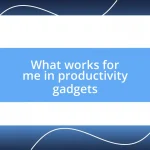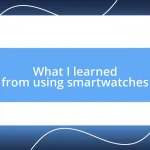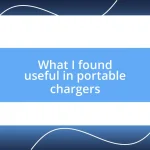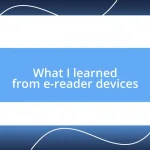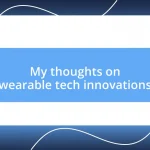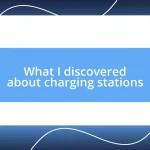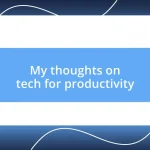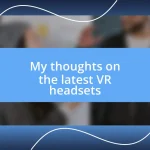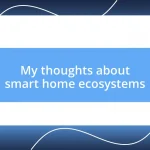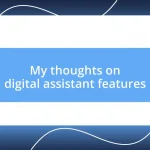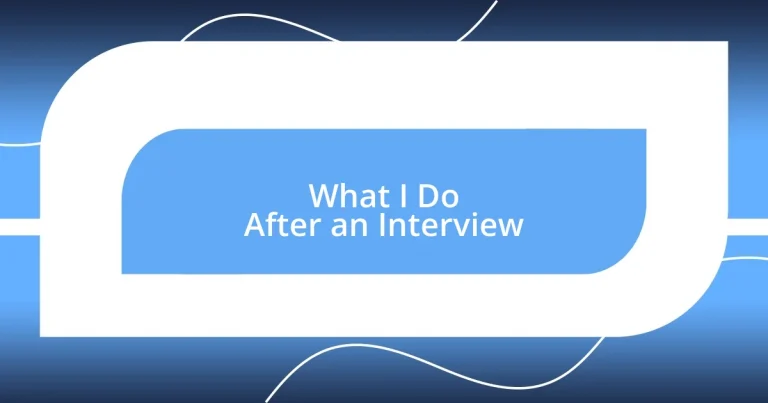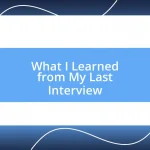Key takeaways:
- Reflecting on interview performance helps identify areas for improvement and boosts preparedness for future opportunities.
- Sending a timely and personalized thank you email reinforces gratitude and demonstrates continued interest in the role.
- Updating your resume and LinkedIn after an interview aligns your professional narrative with recent discussions, enhancing your overall job candidacy.
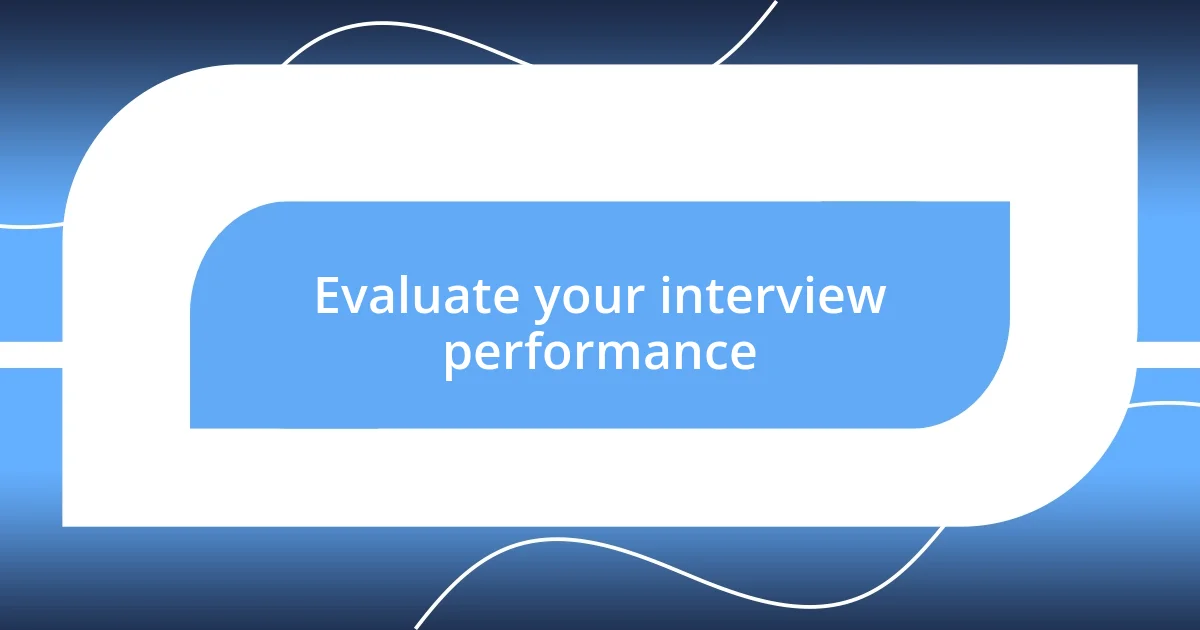
Evaluate your interview performance
After an interview, I always take a moment to reflect on how it went. I ask myself, “Did I communicate my thoughts clearly?” For instance, during a recent interview for a project manager role, I realized I fumbled a question about my experience with budgeting. This made me think about how I could have better highlighted my skills in that area, and it still lingers in my mind.
I also find it helpful to jot down specific questions that challenged me. Remember the last time I faced an unexpected question? It was about a situational scenario that caught me off guard. I later realized that if I had prepared more thoroughly for behavioral questions, I would have shown off my ability to think on my feet more effectively. It’s these small nuances that really affect how I perceive my performance.
Sometimes, I also reach out to a trusted friend or mentor to discuss my experience. Sharing those feelings really helps to contextualize things. I can’t help but wonder if others share this kind of post-interview vulnerability. At the end of the day, I always aim to learn from each experience, turning even the smallest of stumbles into stepping stones toward improvement.
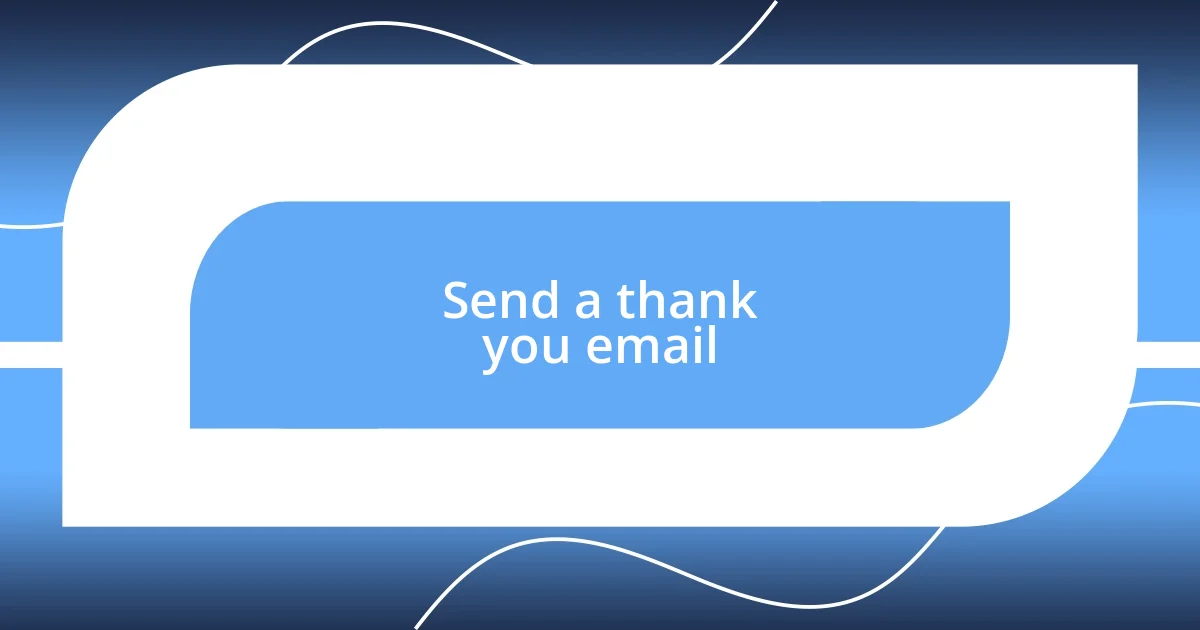
Send a thank you email
After every interview, I make it a priority to send a thank you email. This simple gesture not only shows my appreciation for the opportunity but also reinforces my interest in the role. I remember one time, I sent a thoughtful note to a hiring manager after an interview for a marketing position. A few days later, I learned that it made a notable impression on them, which I believe helped me stand out amidst the competition.
Here are some tips on crafting a compelling thank you email:
- Be prompt: Send your email within 24 hours to keep the conversation fresh in their mind.
- Personalize your message: Reference specific topics discussed during the interview; it shows you were engaged and attentive.
- Keep it concise: Express gratitude, reiterate your interest, and mention any relevant skills or experiences that align with the role.
- Proofread: A final read-through ensures there are no typos, leaving a professional impression.
Taking a few moments to pen a sincere thank you email can be a game changer in the hiring process.
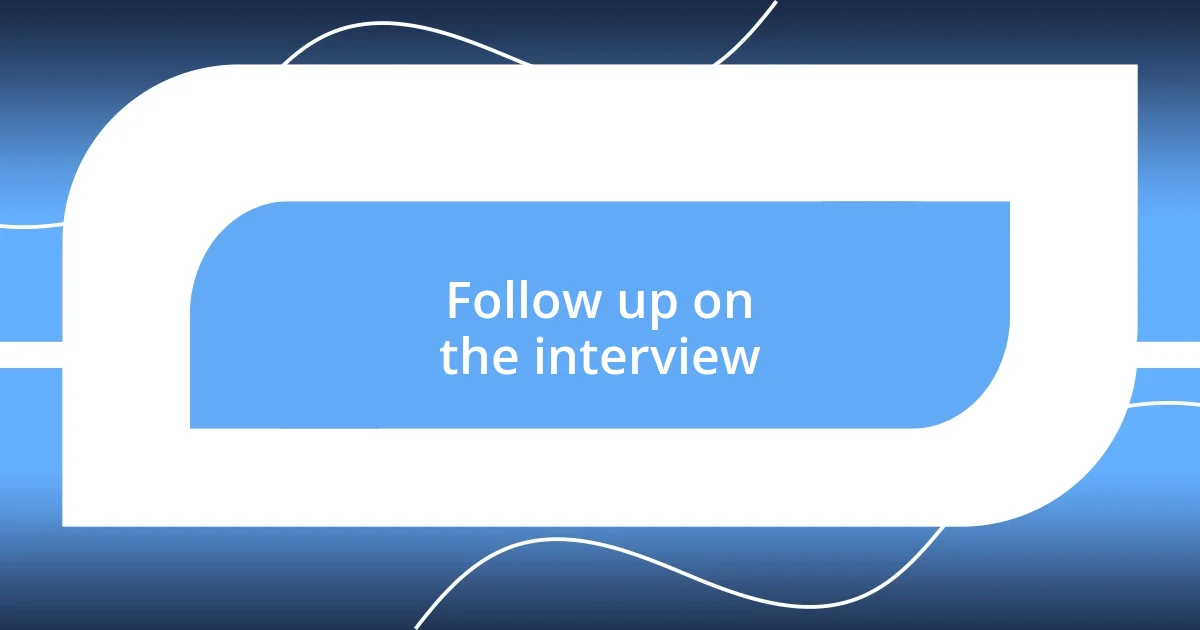
Follow up on the interview
Following up after an interview is crucial for demonstrating my continued interest in the position. I like to wait a few days after sending my thank you email, and then I might send a follow-up message if I haven’t heard back. I recall a time when I didn’t hear back for over a week after an interview, so I sent a follow-up note. The response was positive, and it turned out the hiring manager had just gotten busy, but my message helped to put my name back on their radar.
I believe that following up shows initiative and professionalism. Whenever I do this, I aim to balance being polite and assertive. I remember an interview where I followed up with a question about the next steps in the hiring process. Not only did it showcase my enthusiasm, but it also opened up a dialogue that I found really rewarding. Feeling that level of engagement strengthens my connection with potential employers—it’s like building a rapport even before the job offer comes in!
Crafting my follow-up communication is about more than just maintaining visibility; it’s also about reinforcing my fit for the role. I once took the time to briefly mention how my past experience would benefit the team. Thinking back, it felt great to articulate my value in a concise way, adding another layer to my presentation of myself. Each follow-up allows me to reflect on what I could bring to the table, which keeps me motivated.
| Follow-Up Action | Effectiveness |
|---|---|
| Thank You Email | Reinforces gratitude and interest, making a positive impression |
| Follow-Up Message | Shows initiative and keeps communication lines open |
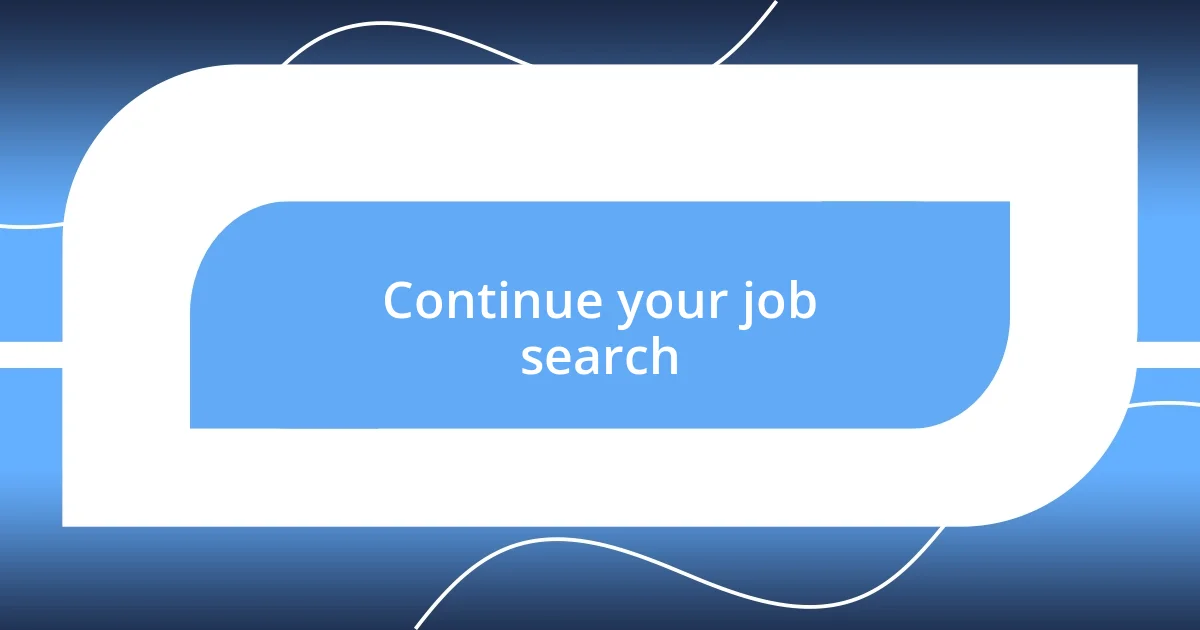
Continue your job search
Continuing my job search after an interview is crucial for maintaining momentum. I remember a time when I landed a second interview after the first one didn’t feel quite right. Instead of sulking, I kept my options open by applying to other roles. This proactive approach not only expanded my opportunities but also alleviated some of the anxiety about waiting for responses.
While I await news from potential employers, I like to take the time to review my job applications and refine my resume. It’s a bit like editing a story; sometimes, tweaking a few key phrases can change the entire narrative. I once realized that the way I described my previous role didn’t fully capture my achievements. Updating it not only improved my chances but also boosted my confidence, knowing I was presenting my best self.
Have you ever felt that the waiting game can be overwhelming? I certainly have. That’s why I find value in setting daily or weekly goals for my job search. Whether it’s networking, researching companies, or expanding my skills through online courses, keeping myself engaged helps me stay positive. Each small step reinforces that I’m taking control of my career path, no matter how uncertain it may seem at the moment.
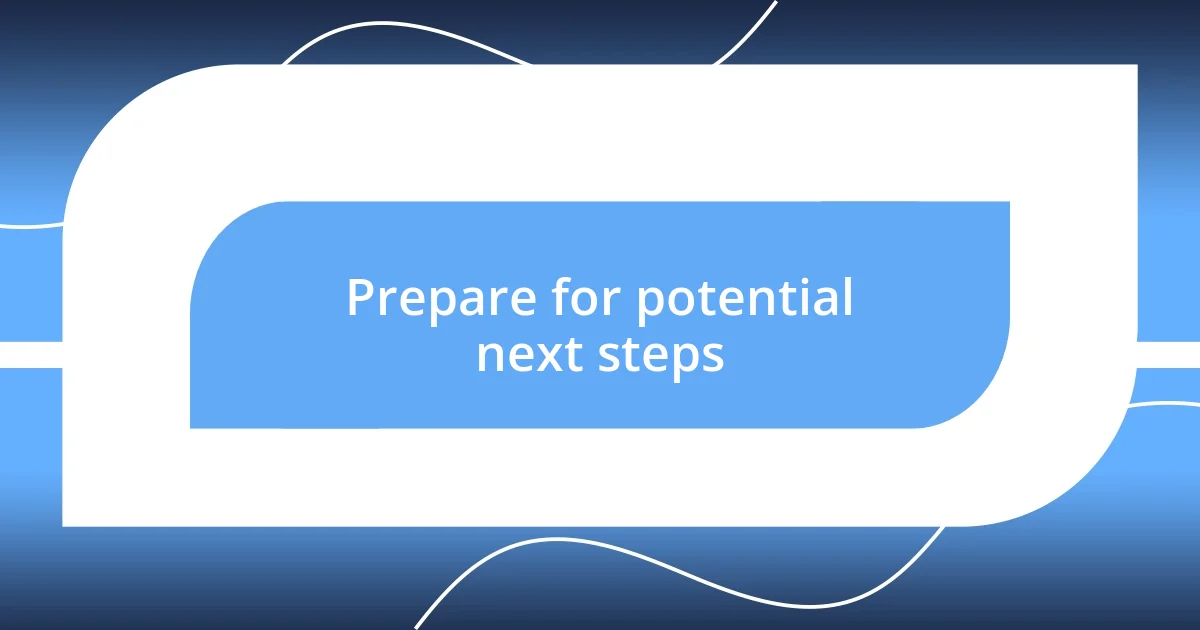
Prepare for potential next steps
Preparing for potential next steps after an interview is like getting ready for a dance; it requires timing and grace. I once found myself in a position where I was asked to prepare for a second interview while simultaneously managing other opportunities. Juggling those possibilities brought a mix of excitement and anxiety, and I learned to mentally list my priorities and what I wanted to convey in each scenario. Isn’t it intriguing how being prepared can transform uncertainty into confidence?
I also think about the power of understanding the typical timelines in a hiring process. During one interview, I asked the recruiter about their decision-making timeline, which helped me manage my expectations. Knowing I had about two weeks to hear back gave me the relief to pursue other positions without lingering doubt. Have you ever experienced the relief of clarity in your job search? That’s the kind of reassurance that can keep motivation high, so I encourage you to seek out this kind of information.
As I await responses, I take time to research the company culture and revisit the role’s requirements. Engaging with current employees on platforms like LinkedIn can provide valuable insights. There was a time when I connected with someone who shared the challenges their team faced. This not only helped me visualize how I could contribute if I were hired, but it also prepared me for potential conversations in future interviews. Isn’t it fascinating how a little preparation can turn what feels like a wait into a strategic move?
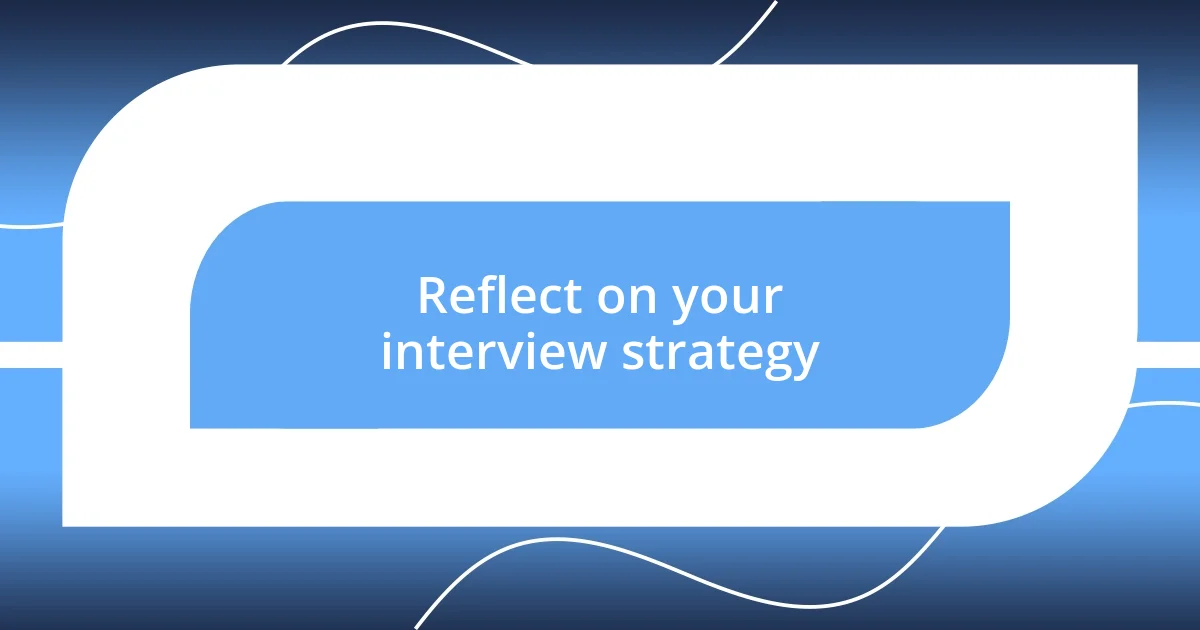
Reflect on your interview strategy
After an interview, I find it incredibly valuable to reflect on my interview strategy. I remember one particular interview where, despite feeling I had prepared thoroughly, I struggled to articulate my experience with a specific project. Looking back, I realized that I could have structured my responses more effectively by using the STAR method—an acronym for Situation, Task, Action, and Result. Have you ever left an interview thinking you could have communicated better? Taking the time to analyze my performance helps me pinpoint areas of improvement for future opportunities.
In addition to dissecting my responses, I also consider the types of questions I asked the interviewer. During one interview, I was so eager to show off my knowledge that I forgot to inquire about the team dynamics. Reflecting on this, I realized that asking questions can demonstrate my genuine interest in the role. It’s not just about impressing them; it’s about ensuring that the position is a good fit for me as well. Have you thought about how the questions you choose can change the trajectory of an interview?
Finally, I like to think about the overall impression I left. After one interview, I felt an immediate connection with the interviewer, and I wondered if that chemistry would translate into a good working relationship. Reflecting on those feelings helps me gauge what I should look for in future interviews, emphasizing the importance of not only skills but also cultural compatibility. Isn’t it interesting how our emotional responses can inform our career choices? By processing these experiences, I feel more equipped for the next challenge that comes my way.
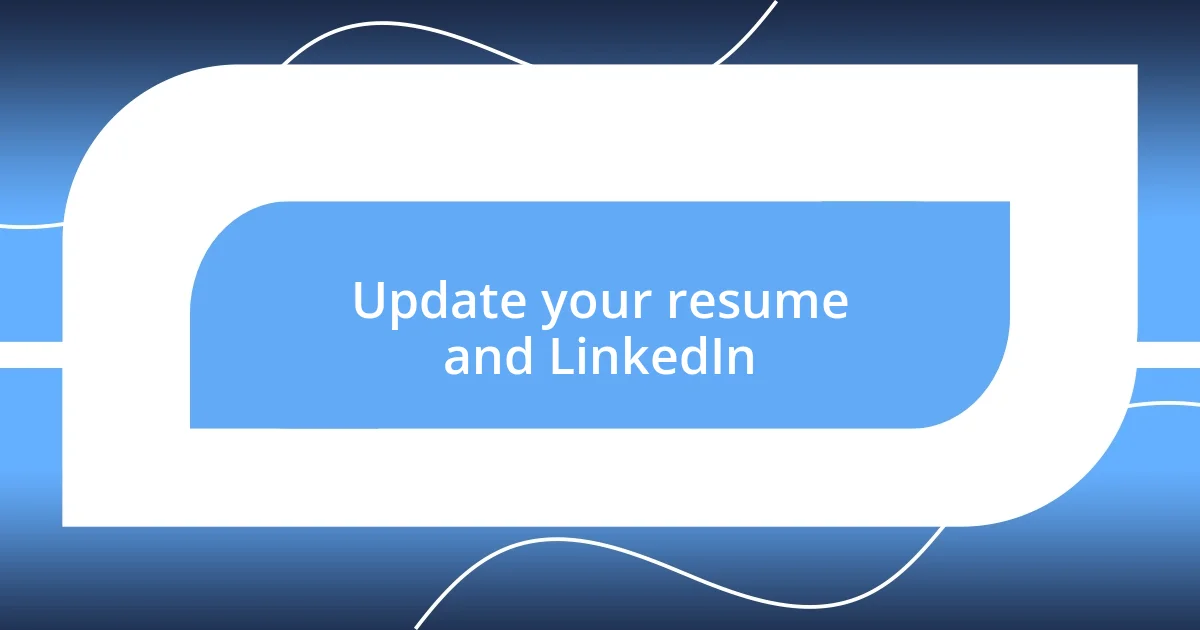
Update your resume and LinkedIn
Updating your resume and LinkedIn is a crucial step right after an interview. I remember a time when I received feedback that my resume didn’t highlight one of my key achievements, which turned out to be a significant talking point during an interview. That experience taught me the importance of not only updating my resume but also tailoring it to reflect the specifics I discussed during the interview. Have you ever considered how aligning your resume with your conversation can create a more compelling narrative about your skills?
Moreover, polishing my LinkedIn profile feels like fine-tuning my professional brand. Just a week after an interview, I decided to add a new project to my profile that I mentioned in conversation. When I later connected with the interviewer on LinkedIn, I felt more confident knowing that my profile showcased the relevant experience I shared. Linking these details helps create a holistic picture of who I am as a candidate. Have you thought about how your online presence can reinforce the impression you left during your interview?
Finally, remember the power of networking through LinkedIn updates. Each time I update my profile, I take the opportunity to connect with new contacts I meet during interviews or industry events. Recently, I reached out to an interviewer I connected with, and we began a dialogue that led to exploring mutual interests in our fields. This emphasizes how dynamic your profile can be—not just a static resume but a living document that evolves with your journey. Isn’t it exciting to think about how your online presence can be a powerful tool in opening new doors?

